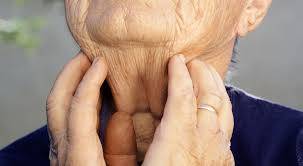Hypothyroidism: Causes, Symptoms, Diagnosis, and Treatment
Introduction:
Hypothyroidism is a common endocrine disorder characterized by an underactive thyroid gland, leading to reduced production of thyroid hormones. This condition affects millions of people worldwide, with varying degrees of severity. Understanding hypothyroidism is crucial for both patients and healthcare professionals to ensure timely diagnosis and effective management. In this comprehensive guide, we'll delve into the causes, symptoms, diagnosis, and treatment options for hypothyroidism.
Section 1: Anatomy and Physiology of the Thyroid Gland
To understand hypothyroidism, it's essential to grasp the basics of the thyroid gland's anatomy and function. Situated in the front of the neck, the thyroid gland plays a vital role in regulating metabolism, growth, and energy levels. It produces two main hormones: thyroxine (T4) and triiodothyronine (T3), which influence various bodily functions, including heart rate, body temperature, and weight.
Section 2: Causes of Hypothyroidism
Hypothyroidism can stem from various underlying factors, including autoimmune disorders, thyroid surgery, radiation therapy, medications, iodine deficiency, and congenital thyroid abnormalities. The most common cause of hypothyroidism in developed countries is autoimmune thyroiditis, also known as Hashimoto's thyroiditis, wherein the body's immune system attacks the thyroid gland, impairing its function over time.
Section 3: Signs and Symptoms of Hypothyroidism
The symptoms of hypothyroidism can be subtle and develop gradually, making diagnosis challenging. Common signs and symptoms include fatigue, weight gain, cold intolerance, dry skin, constipation, muscle weakness, joint pain, depression, and cognitive impairment. Additionally, hypothyroidism may lead to complications such as goiter, infertility, cardiovascular problems, and myxedema coma in severe cases.
Section 4: Diagnosis of Hypothyroidism
Diagnosing hypothyroidism involves a combination of medical history review, physical examination, and laboratory tests. Thyroid function tests, including measuring levels of thyroid-stimulating hormone (TSH), T4, and sometimes T3, are crucial for confirming the diagnosis. Imaging studies such as ultrasound may also be used to assess the thyroid gland's size and structure, especially in cases of suspected nodules or goiter.
Section 5: Treatment Options for Hypothyroidism
The primary treatment for hypothyroidism involves hormone replacement therapy, typically with synthetic thyroxine (levothyroxine). This medication restores normal thyroid hormone levels in the body, alleviating symptoms and preventing complications. The dosage of levothyroxine is individualized based on factors such as age, weight, severity of hypothyroidism, and presence of other medical conditions. Regular monitoring and adjustment of medication are essential to ensure optimal thyroid function.
Section 6: Lifestyle Management and Home Remedies
In addition to medication, certain lifestyle modifications and home remedies can help manage hypothyroidism effectively. These include maintaining a balanced diet rich in iodine, selenium, and other essential nutrients, engaging in regular exercise to boost metabolism and energy levels, managing stress through relaxation techniques such as yoga and meditation, ensuring adequate sleep, and avoiding smoking and excessive alcohol consumption, which can worsen thyroid function.
Section 7: Complications and Prognosis
Untreated or poorly controlled hypothyroidism can lead to serious complications, including cardiovascular disease, infertility, neurological disorders, and myxedema coma, a life-threatening condition characterized by extreme hypothyroidism. However, with proper diagnosis and treatment, the prognosis for hypothyroidism is generally favorable. Most patients experience significant improvement in symptoms and quality of life with appropriate medication and lifestyle changes.
Section 8: Special Considerations: Hypothyroidism in Pregnancy and Children
Hypothyroidism during pregnancy requires special attention as it can have adverse effects on both maternal and fetal health. Pregnant women with hypothyroidism should receive adequate thyroid hormone replacement therapy to maintain normal thyroid function and minimize risks to the baby. Similarly, hypothyroidism in children can impair growth and development if left untreated, highlighting the importance of early detection and intervention.
Conclusion:
Hypothyroidism is a prevalent endocrine disorder with diverse causes and manifestations. By understanding its underlying mechanisms, recognizing its signs and symptoms, and employing appropriate diagnostic and treatment strategies, healthcare professionals can effectively manage this condition and improve patients' overall well-being. With timely intervention and ongoing care, individuals with hypothyroidism can lead healthy, fulfilling lives.




No comments yet
Be the first to share your thoughts!